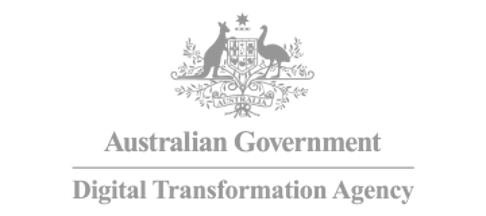PMO for Financial Sector
Recent times have made it clearer than ever that digital transformation is the future of the financial sector. The finance landscape is changing fast and everyone is taking notice. 97% of financial firms are making efforts on digital transformation with over a fifth (21%) placing digital transformation as their top priority. But even as enthusiastic as firms may seem, many are falling short on the actual implementation of their digital transformation strategies.
This is because many firms are running on traditional operation systems and management approaches, some even 30-40 years old, which have made for cultures, technologies and processes that are not conducive to the fast-paced and ever-changing landscape of the current finance industry.
And this is where pmo365 saves the day.
We want to help future-proof your firm's activities and processes to make sure the right systems, processes and tools are in place to put your firm in the best position to tackle the market and optimise your portfolio.
How does pmo365 future-proof financial firms?
We make sure your firms are ready for the digitally-based future by:

Visibility and control
Giving your firm the critical agility needed through complete visibility and control over all your activities and processes in your portfolio in real-time.

Enable effective and efficient processes
Ensuring your future ICT projects are using the most effective and efficient processes that are customer-focused rather than output-focused.

Integrating all your systems, processes and apps
Integrating all your systems, processes and apps onto a single platform on your pre-existing premise so you don’t have to migrate, coach and upskill all your employees onto a completely new system as well as bringing out the most value no matter which methodology is used.

Maximum operational efficiency
Achieving maximum operational efficiency by automating, streamlining and digitizing key operational activities with intuitive and practical tools. From resource management, risk management, benefits management and much more, have all your activities and calculations made on a single intuitive platform.

Training, resources and tools
Supplying all training, resources and tools to help your teams build the best practices that bring out the best of your PPM systems.
.svg)
Do the right processes
Making sure the right systems and processes are in place to make sure the right projects and the right people are selected to optimise your portfolios.
Benefits of digital transformation for financial service firms
Digital transformation seems to be the biggest buzzword floating around, but what are its key benefits for the finance sector specifically? We’ve listed down some key benefits below.
Achieving maximum operational efficiency
Operating as efficiently as possible has been the pursuit of all businesses since the beginning of time but we have in no way mastered it. Sadly, the financial industry has been slightly slower than others to properly adapt new technologies and processes that help achieve this.
Nearly half of finance firms have identified their legacy IT systems as their biggest barrier to full streamlining of operations as these systems, some relying on core systems built over 30 years ago, make it increasingly difficult to develop and integrate new processes and products. Many firms may have brought in new technologies and processes, but the issue lies in whether they are using them to their full potential and whether these technologies are being properly integrated.
Digital transformation strategies are thus becoming central to changing processes and cultures that are contributing to inefficient operations and acting as barriers to digital transformation. An effective project portfolio management (PPM) system is becoming the common means through which these strategies can be properly implemented on an organisational level.
Digital transformation brings proven return on investment
With its ability to better improve customer experience and achieve operational efficiency, the financial benefits of digital investment are becoming clear. Research shows that over 62% of financial firms have seen their revenues increase from 1-9% in the past 12 months. The future potential for ROI is even bigger in the next three years, with 73% of lower middle market companies specifically anticipating an increase of 10% or more in their revenue from their digital investments.
Based on these promising gains, many financial firms are making significant investments in digital transformation, more than half (65%) of all financial service firms plan on creasing their spending by 10% or more, especially with lower middle market firms (83%) planning on matching this investment growth. Digital transformation is no longer a hype but a true necessity that will turn into a battle of speed to see who can adapt and optimise their operations for the digital revolutions the fastest.
Shifting to a customer-focused approach
Traditionally, departments in firms have often worked as singular silos and top-down decision-making takes precedence above all. The issue in such an approach is that customers’ interests are often only prioritized at the highest level of decision-making and the focus for employees is more output than outcomes. Additionally, the lack of focus on customer needs leads to a lack of proper feedback loops that are valuable to improving and introducing new products.
Financial firms are no longer simply competing for attention but for positive customers’ experience. As digital technologies become the primary means of engagement with customers, services that are able to best cater to the customers’ changing needs are capturing the market. ICT innovations are becoming a pivotal function for firms and traditional systems cannot cope with the fast-paced environment that calls for real-time adaptability and accuracy.
The key benefits for digital transformation on customer experience is through new real-time and accurate systems that can leverage on data-driven insights, provide means for engaging with new customers, better position firms to compete for existing customers and streamline processes to beat out competitors.
Financial cycles are going real-time, so should operations
The traditional financial cycles are becoming unnecessary as we shift to 24 hour services. The current financial cycles are simply limited by the technology and data-processing limitations which are bound to change as innovation in the space grows. As a result, actuals and forecasts need to be faster than ever. Say good-bye to monthly or quarterly forecasting and say hello to real-time data.
But the real-time nature of the financial industry is not limited to analysis and forecasting. As operations are becoming increasingly geographically diverse, keeping up with the changes globally is a necessity for a forward positioned firm. Simply having real-time data but no proper improvements in operations doesn’t take full advantage of these insights. Once operations are fully optimised and streamlined to be compatible with the fast-paced industry, employees can focus more in discovering new insights and acting on them rather than wasting time in typical admin and operations.
Future-proofing for the rise of AI, robots and algorithms
AI has been the talk of the town and their potential to disrupt entire industries and their operations has been viewed as a real threat. Don’t be the firm with their head in the sand and unprepared for the inevitable impact of automation. Digitally prepared organisations are seeing this change not as a threat, but an enormous opportunity.
With the speed of innovation in automation and AI, many of the typical operations activities for financial firms will be taken over and automated, significantly cutting down costs and shifting workforce dynamics. Adapting too late will cost firms their competitive advantage and in such a fast-paced industry, speed will be of the utmost importance.
With new technology comes the need for new talent to bring out its potential. These financial talent models are greatly shifting from accountants to data scientists, business analysts and storytellers. Future-proofing your new hires for these future skills you are looking for and implementing digital strategies to shift cultures towards digitally-based practices will be key to success.
Key challenges of digital transformation in the financial sector
Data is king but it doesn’t mean mastering it is easy
Just because firms are doing the hard yards to align and integrate data into their operations, it doesn’t mean that they can capture the full value of digital transformation. Automation and AI will no doubt make our data-related job easier, but it is no silver bullet that suddenly solves all our problems.
Humans still play a large role in making data valuable and we are bound to make mistakes. Proper data entry, commas, abbreviations, nomenclature and the hundred of small factors still add up to making data valuable. PPM systems won’t miraculously solve this issue, but it can significantly reduce the chances for these mistakes and makes highlighting these mistakes when they occur faster and easier to solve.
Governance in the digital space needs work
Good governance has always been critical for any organisation-wide initiative, even more when operations are shifting to the digital space. 39% of financial firms have identified establishing the right metrics for measuring progress as one of the biggest challenges with new digital initiatives. This becomes even more complicated with the increasing compliances and restrictions on data and fintech that have to be considered.
Proper governance frameworks are also a critical factor to effective communications, an area of over half of financial service firms cited as the top barrier to digital transformation implementation. In an industry that needs agility more than ever, streamlining communications and having clear frameworks shaves of valuable time and effort.
Sadly, many firms are still relying on manual project governance, mainly left in the hands of project managers to consistently address and implement. With collaborative work increasing, compliance factors growing and demand for speed accelerating, implementing a proper PPM system that can automate these processes becomes key.


How pmo365 facilitates digital transformation for financial sector
Streamlining your operational activities with zero overhead costs
Streamlining operations is one of the key objectives of digital transformation. Pmo365 is an integrative platform filled with processes, tools and apps that are made to optimise your operations across the board and get you the results you want to see in your portfolio. Some of the ways we streamline your operations is through.
- Digitizing, optimising and simplifying your resource management, risk management, cost management and schedule management activities (and many more) so minimal resources are wasted allocating, analysing and communicating necessary changes.
- Integrating all key processes on a single platform so time is not wasted hunting for key data.
- Advancing your forecasting with greater accessibility and integration of data along with automatic calculations and predictive tools that allow for simplified scenario planning.
- Simplifying your project governance activities through automated approval gate systems.
- Enhancing communication and collaboration between teams and departments.
- Introducing automated enhanced dashboards that allow for quick and accurate reporting.
Translating your data into value
As mentioned, data is the backbone of the digital future, but simply having access to it is not enough. pmo365 helps you first gather all your data onto a single platform through its integrative capacity that can connect to nearly every external data source your firm may use. We take it a step further with our real-time reporting, predictive tools and interactive dashboards that let you easily visualize and use your massive amounts of data to get tangible results and value. From our smart algorithms that help prioritise your risks to resource management heat maps that allow you to easily and accurately allocate resources to the right projects, we’ve got ways to make sure your data is getting real value across all your processes and activities.
Automating your governance framework and activities
As one of the biggest challenges of digital transformation, pmo365 can make your project governance activities a breeze.
Firstly, we can automate all your key governance activities from start to end. From the initial project business case, design reviews, and issue escalation frameworks all the way to contract and procurement management. All of this is done via robotic process automation inherited from Microsoft Power Platform. Additionally, we integrate all our features and processes onto your pre-existing premise so you don’t have to jump through hoops to make sure your projects are following their defined frameworks. Finally, we ensure key frameworks will be in place to make sure roles, responsibilities and tasks are clearly defined and to streamline communication chains when issues escalate and quick approvals are needed.
Making your ICT management and growth activities focus on the customer
Information and Communication Technologies (ICT) are becoming a crucial competitive factor for financial firms. It is becoming more critical than ever that ICT investment and projects are strategically aligned and the value and benefits of all activities are clearly understood and communicated to key stakeholders.
One of the biggest issues with how ICT projects have been done in the past is that traditional project management approaches are too slow to keep up with the ever-changing and fast-paced technological environment of the financial industry and too many projects have become overly focused on meeting output milestones rather than value-generating outcomes.
pmo365 helps solve these issues by giving your firm the necessary agility through complete visibility and control of all your activities and processes in your portfolio in real-time. We also support you throughout your entire project lifecycle to make sure you are selecting the right projects with the right focus using the right processes and the right people. The way we do that is by implementing an effective project pipeline process which ensures the right ideas are being selected, evaluated and converted into projects alongside a benefits management process that makes sure the exact value and benefits of these projects are clearly defined. Additionally, we make sure that client feedback loops are in place through apps that make sure their opinions are not only being considered, but are directly influencing project focus and outcomes.
Some of you may think that this will simply mean additional unnecessary steps. But don’t worry! We make all of these activities simplified and automated on our platforms so you get all the benefits with minimal effort and training.
Helping you shift towards iterative approaches like Agile that suit your firm's needs
As traditional project management methodologies are unable to cope with the unique needs of digital projects, many firms have begun to adopt iterative methodologies like Agile and Scrum. However, we understand that many firms have been running under certain methodologies and habits don’t change that quickly. We also understand that not all teams can or should work fully based on Agile principles.
The problem many organisations have faced is the limitation of their systems that often better serve one methodology over the other, forcing all teams to work in limited and sometimes restricted frameworks. Not many platforms are adaptable and integrative enough to accommodate for hybrid implementations of different approaches, practice and data.
With pmo365 we have that all covered. Our platform allows you to integrate all your systems, processes and apps onto a single platform so no matter what methodology or tools your teams use, you can get the most out of their capabilities. If you use a Waterfall approach and use Microsoft Projects, no problem! If you use a Kanban approach and use JIRA or Azure DevOps, no problem too! We can support and integrate all your activities on your pre-existing premise so you don’t have to migrate, coach and upskill all your employees onto a completely new system. Nearly any external data source can be linked up, integrated and standardised so no valuable information is left in individual silos due to different applications or processes.
Our partners
We've worked with








Project Management Process: The Complete Guide from Start to Finish


Scrum Meetings: The Backbone of Agile Team Communication


Lag Time in Project Management: What It Is and Why It Matters

